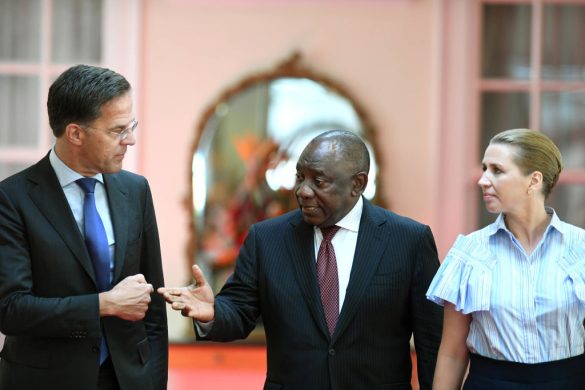Zimbabwe is allegedly the most repressive country in the region in terms of media freedom, according to an annual survey by the Media Institute of Southern Africa (MISA).
The New York-based Committee to Protect Journalists (CPJ) also included Zimbabwe in its list of “The Worlds Worst Places to be a Journalist”, released on Monday to mark World Press Freedom Day.
– Last year saw the biggest blow to press freedom yet, with authorities closing the Daily News, Zimbabwes only independent daily and the countrys most popular paper, the CPJ said. – Zimbabwean officials have proven particularly sensitive to coverage of political unrest and the countrys severe economic problems.
Last year the media freedom alerts received from Zimbabwe represented 54 percent of the total recorded by MISA in 10 countries. In 2002 it contributed 57 percent of the total in 11 countries, according to the survey findings published in a report titled “So This is Democracy? State of Media Freedom in Southern Africa”.
Zimbabwe is a test case for members of the African Union, who are attempting to define democracy within the Pan-African context, according to Brian Kagoro, chairman of the Crisis in Zimbabwe Coalition, an organisation comprising NGOs and human rights activists.
From 2000 to 2003, MISA recorded 360 alerts in Zimbabwe, and described the Access to Information and Protection of Privacy Act as “one of the most effective legal instruments of state control over the media and civil society communication anywhere in the world”.
Malawi had overtaken Zambia as the country that “normally takes second place in MISAs charts of media rights infringements,” with a recorded 18 alerts, said the reports author, Jeanette Minnie.
– However, in national terms, the statistics in Malawi are remaining constant, and those in Zambia have decreased. In 2000 Malawi recorded 16 alerts, 18 in 2001 and 17 in 2002, she noted.
– This is a sign of continuing and festering media freedom problems and, in a broader democratic context, a sign of political stagnation in the country. Journalists in Malawi continue to be beaten, censored, detained, threatened and convicted under anti-media freedom laws, she claimed.
MISA noted another aspect of the alerts from Malawi over the last two years, concerning alleged “attempts by the state, through the Malawi Communications Regulatory Authority and the countrys broadcasting laws, to obstruct private and community radio stations from giving voice to opposition political parties”.
– Given that six out of every ten Malawians live in a state of destitution, and that the life expectancy of a Malawian is 39 years, it is treason to restrain any media initiative aimed at providing empowering information, or avenues for effective dialogue, or participation of the citizenry, alleged Francis Chikmunkhuzeni, who wrote the Malawi section of the MISA report.
In neighbouring Zambia, it was reported that “threats, harassments and interference continued to be the order of the day” last year. The government banned a live TV programme, “perceived as being critical of the government”, that reviewed the front pages of all national daily newspapers.
– Government policy remained unchanged on the privatisation of the public media, which remained under state ownership and control, noted Herbert Macha, the author of the section on Zambia.
On a more positive note, MISA said it had received 188 alerts in 2003, or almost 10 percent fewer than in 2002, when there were 208 alerts.
Last year saw few developments in Angolas media sector. In a country that recently emerged from civil war, and where great social inequities are present, the lack of a vibrant regional and local press is blatantly evident.
– At present the Angolan media serve merely as a conveyor of “state” information; no active investigative journalism is practiced, and there certainly is no definitive move to review information rights, commented Ismael Metus, author of the Angola section.
The Lesotho section, written by Thabo Motlamelle, observed that the “government has yet to actively promote a media-friendly legislative and policy framework through the enactment of media- friendly laws, such as a freedom of information law and the introduction of an all-inclusive media policy”.
He added that an “uneasy” relationship existed between government and the private independent media, which was “financially weak”.
Swazilands media practioners were “more optimistic today”, noted the report, partly because of the draft constitution produced last year, which guaranteed freedom of expression and freedom of the press.
Kilde: FN-bureauet IRINnews















